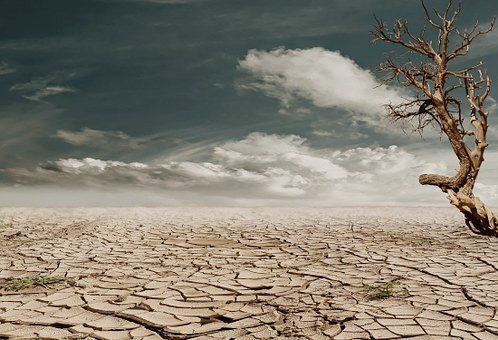President Cyril Ramaphosa on Monday said the impact of climate change was already being felt in “some South Africans’ quality of life through drought and flooding,” warning that the economy would pay a heavy price if the country continued with its carbon-intensive production methods.
Addressing the nation in his weekly newsletter, Ramaphosa said carbon and greenhouse gas emissions were a product of the burning of fossil fuels such as oil and coal, which contributed to global warming and changes in the earth’s climate patterns.
The risks associated with climate change were just too great for the country to continue on its path of using carbon intensive production methods in the economy, he said.
“Several communities in Mpumalanga Province, for example, are affected by high levels of pollution, which increases respiratory illness and other diseases,” Ramaphosa said.
He added: “And those who are dependent on the ocean for a living have already seen depleted fish stocks amid changing weather patterns and changes in ocean temperature.”
He warned that as South Africa’s trading partners pursued the goal of net-zero carbon emissions, “they are likely to increase restrictions on the import of goods produced using carbon-intensive energy.”
“And since so much of our industry depends on coal-generated electricity, we are likely to find that the products we export to various countries face trade barriers. In addition, consumers in those countries may be less willing to buy our products,” Ramaphosa said.
According to the South African leader, “the other economic risk is that investors will shy away from investing in fossil fuel powered industries.”
“Banks and financial institutions are already facing pressures from their shareholders not to finance enterprises that depend on fossil fuels to produce their products or services,” Ramaphosa said.
He acknowledged that although the low-carbon economy transition was a necessary one, it needed to be “just” because some sectors would be negatively impacted.
NM/jn/APA


